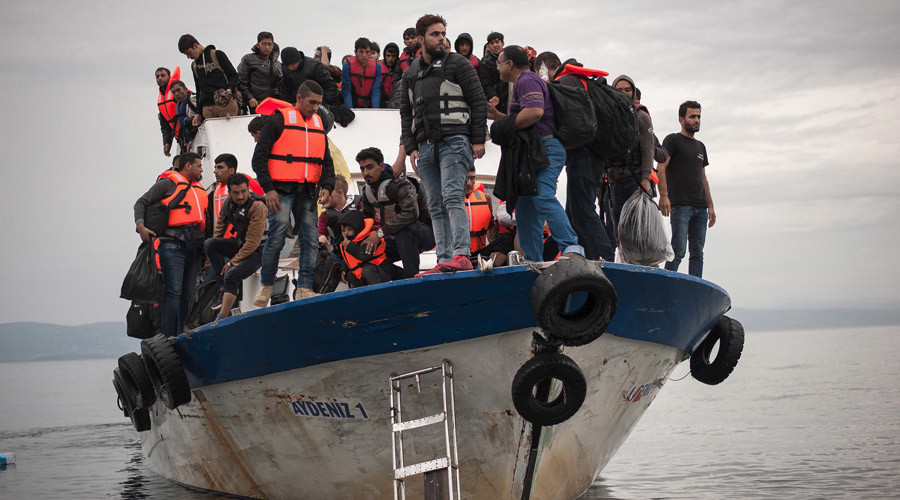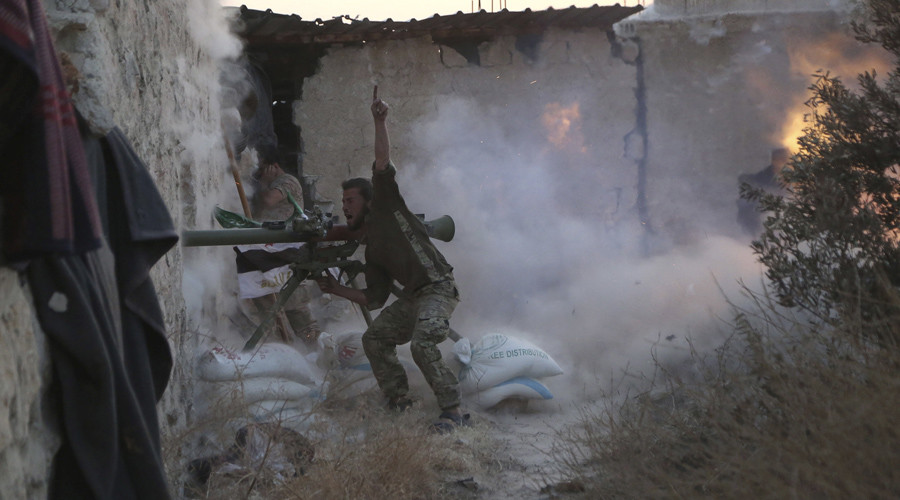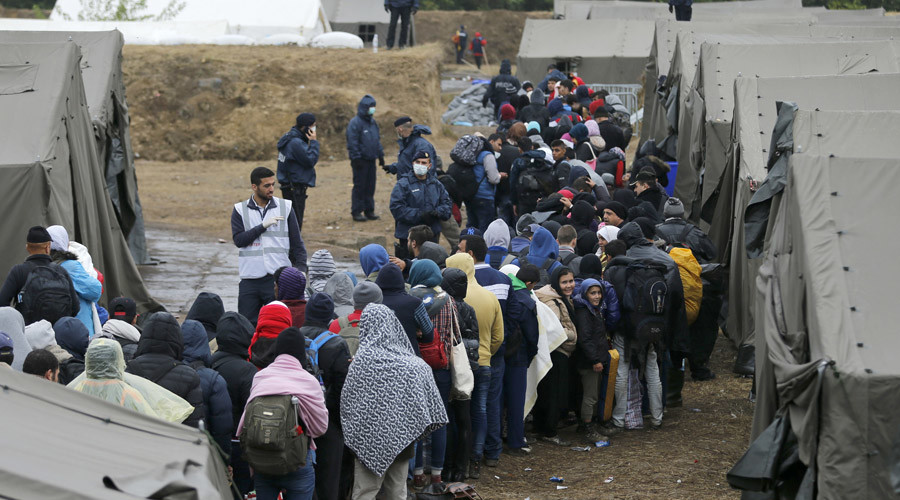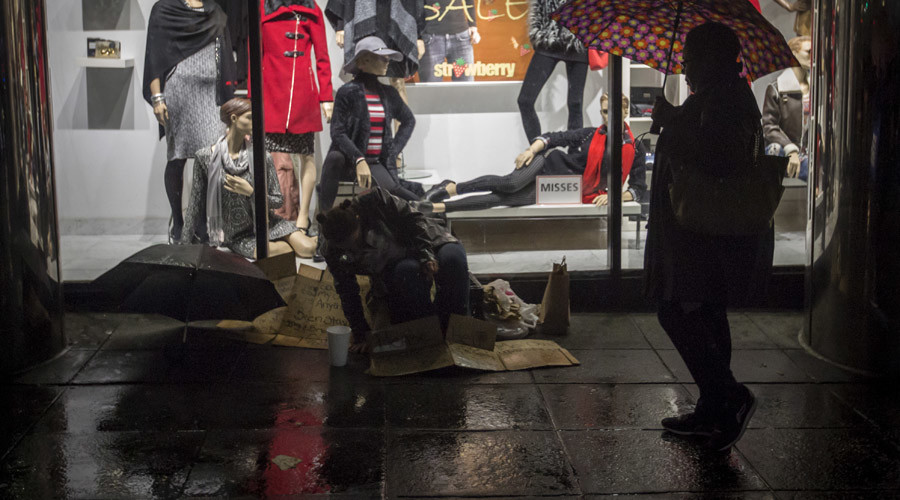Dialogue of Civilizations: Imagining a world beyond global disorder
Published time: 12 Oct, 2015

© Fotis Plegas G / Reuters
After Samuel Huntington’s popular article, “The Clash of Civilizations?” (1993) appeared in Foreign Affairs, some individuals
proposed that what the world really needed was a dialogue of
civilizations, not a clash. Twenty-two years later, the dialogue is as
relevant as ever.
The annual World Public Forum – Dialogue of Civilizations
brings together scholars in an effort to promote dialogue and peace instead of clashes and war. The approach is multidisciplinary and promotes evidence-based discussions. I feel empowered and greatly enhanced by the learning and cross-fertilization of ideas that takes place in venues such as the World Public Forum Dialogue of Civilizations.
This was my first opportunity to participate in the Forum, held on the Greek island of Rhodes. Sharing novel ideas and experiences from around the world, it becomes clear that the world’s current chaos is neither normal nor necessary. Therefore, in support of pluralism, the Forum seeks to introduce to the academic community rigorous knowledge that opposes war.
brings together scholars in an effort to promote dialogue and peace instead of clashes and war. The approach is multidisciplinary and promotes evidence-based discussions. I feel empowered and greatly enhanced by the learning and cross-fertilization of ideas that takes place in venues such as the World Public Forum Dialogue of Civilizations.
This was my first opportunity to participate in the Forum, held on the Greek island of Rhodes. Sharing novel ideas and experiences from around the world, it becomes clear that the world’s current chaos is neither normal nor necessary. Therefore, in support of pluralism, the Forum seeks to introduce to the academic community rigorous knowledge that opposes war.
It
also serves as a place where peace-oriented research can be shared by
like-minded scholars. The Forum recognizes that it has a role to play
not only in the generation and support of knowledge about peace, but
also in support of action for peace. Toward the former, the Forum has
held discussions about starting a peer-reviewed journal to sustain its
generation of knowledge for peace. The question that remains is the
extent to which these scholars at the Rhodes Forum will be able to
translate their ideas into political action and ultimately into public
policy.
The Forum addressed many issues of today, including
European Security, Digital Media, The Current Migration Crisis, and the
use of Hybrid Wars as a Subversion Tool; but took immediate action to
address the crises in Syria calling for a ceasefire and recent events in
Turkey, when demonstrators were attacked by government police.
On Day One of the Dialogue, I addressed the audience about the need inside of the United States for international support for our local peace leadership. I mentioned that the US is full of authentic peace leaders, but going against the call for war means personal risk, personal insecurity and oftentimes personal penury.
On Day One of the Dialogue, I addressed the audience about the need inside of the United States for international support for our local peace leadership. I mentioned that the US is full of authentic peace leaders, but going against the call for war means personal risk, personal insecurity and oftentimes personal penury.

© Hosam Katan / Reuters
Among the attendees was President and Co-Founder of World Public Forum, Dr. Vladimir Yakunin,
a former head of Russian Railways who currently serves as president of
the International Union of Railways; former Indian Foreign Secretary Kanwal Sibal; and former Chancellor of the Republic of Austria, Alfred Gusenbauer. Other notables scheduled to speak are Johan Galtung, Richard Falk and Mazin Qumsiyeh. I am particularly happy to meet Walter Mignolo, who also spoke on Day One about "coloniality" of power—a topic that I wrote extensively on in my dissertation on Hugo Chavez.
One particularly interesting presentation was made by Professor Anatoli Antonov, from Russia, who made a comparison between the Soviet Union and today’s economy, showing how the capitalist system opposes the family unit. He pointed out that salaries paid today are only to sustain individuals and that families cannot be sustained on the wages paid. He suggested that corporate profits should be cut by two-thirds, providing the opportunity to pay a family wage, protect the environment, and then with the final one-third going to profit. Antonov suggested that capitalism provides the wrong incentives, concluding that this is so because “family doesn’t produce profit.”
Jayati Ghosh, Professor of Economics from India, deviated from her pre-assigned topic of international development economics and spoke passionately about Europe’s immigration crisis. Her poignant words rang throughout the hall, “The migrants are here because you are there.”
One particularly interesting presentation was made by Professor Anatoli Antonov, from Russia, who made a comparison between the Soviet Union and today’s economy, showing how the capitalist system opposes the family unit. He pointed out that salaries paid today are only to sustain individuals and that families cannot be sustained on the wages paid. He suggested that corporate profits should be cut by two-thirds, providing the opportunity to pay a family wage, protect the environment, and then with the final one-third going to profit. Antonov suggested that capitalism provides the wrong incentives, concluding that this is so because “family doesn’t produce profit.”
Jayati Ghosh, Professor of Economics from India, deviated from her pre-assigned topic of international development economics and spoke passionately about Europe’s immigration crisis. Her poignant words rang throughout the hall, “The migrants are here because you are there.”

© Antonio Bronic / Reuters
Karl-Theodore von zu Guttenberg, the former German defense minister, warned of the problem policymakers face in a situation from government to “google-ment” having to make decisions in the context of the influence of Google. Richard Werner, Professor at the University of Southampton Business School, maintained that international borrowing for smaller countries is not even necessary and advocates instead public banking and cooperatives for real growth and development.
Vaclav Klaus, former president
of the Czech Republic, also spoke, adding a note of experience against
the current global financial infrastructure of the World Bank and the
International Monetary Fund. Professor C.P. Chandrasekhar,
of India’s Jawaharlal Nehru University, argued that environmental
degradation is the by-product of today’s neoliberal economic strategy.
Echoing my own writings here on RT, Chandrasekhar concluded that
inclusiveness is not on the trajectory of neoliberalism and can never
be. He cited Thomas Piketty’s research as having put the discussion of
inequality on the table for discussion.
Beatriz Bissio, professor at the Federal University of Rio de Janeiro, said that the former colonized world really doesn’t have to reinvent the wheel: The 10 principles of the Bandung Conference, according to her, are quite sufficient for taking the countries of the Global South where they need to be. She began her remarks talking about her own vivid memories of the cost of war and how the Bandung Conference was a turning point for the world whose principles for peace, against racism, colonialism and imperialism are still needed today.
Beatriz Bissio, professor at the Federal University of Rio de Janeiro, said that the former colonized world really doesn’t have to reinvent the wheel: The 10 principles of the Bandung Conference, according to her, are quite sufficient for taking the countries of the Global South where they need to be. She began her remarks talking about her own vivid memories of the cost of war and how the Bandung Conference was a turning point for the world whose principles for peace, against racism, colonialism and imperialism are still needed today.

© Carlo Allegri / Reuters
Finally, professor of philosophy at Columbia University Akeel Bilgrami noted: “One can only resist a master, not dialogue with it.”
This, briefly, is a recap of Day One of the Rhodes Forum. I hope you agree with me that it sounds exciting. It was a great experience for me to be present and I hope to continue this relationship with like minds and like souls. Next week, I’d like to continue my discussion of the research and opinions put forward at the Forum.
This, briefly, is a recap of Day One of the Rhodes Forum. I hope you agree with me that it sounds exciting. It was a great experience for me to be present and I hope to continue this relationship with like minds and like souls. Next week, I’d like to continue my discussion of the research and opinions put forward at the Forum.
The idea of
resistance was very much in the air in Rhodes, Greece. The question is:
What can this dedicated group of scholars do to take their ideas to the
next level? I definitely want to be a part of that.
Cynthia McKinney, former member of the US House of Representatives and Green Party nominee for the 2008 presidency, for RT.
The
statements, views and opinions expressed in this column are solely
those of the author and do not necessarily represent those of RT.
----------------------------------------------------------+
| __o CONTINENTAL CRITICAL MASS
| _`\;,_ come ride with me
| (*)/ (*)
| Bike4Peace Across the USA
-----------------------------------------------------------+
http://claritypress.com/McKinneyII.html
http://www.claritypress.com/McKinney.html
https://www.facebook.com/CynthiaMcKinneyOfficial
http://www.allthingscynthiamckinney.com/CynthiaSpeaks
Silence is the deadliest weapon of mass destruction. OPEN SOURCE EVERYTHING!
| __o CONTINENTAL CRITICAL MASS
| _`\;,_ come ride with me
| (*)/ (*)
| Bike4Peace Across the USA
-----------------------------------------------------------+
http://claritypress.com/McKinneyII.html
http://www.claritypress.com/McKinney.html
https://www.facebook.com/CynthiaMcKinneyOfficial
http://www.allthingscynthiamckinney.com/CynthiaSpeaks
Silence is the deadliest weapon of mass destruction. OPEN SOURCE EVERYTHING!
"My weapon is media, lectures, protest, organization." Kenneth S. Carr (Dedon Kamathi)
"The Bush family has a political dynasty that the Kennedy family was not allowed to have."
Steve Cokely
"We as a nation must undergo a radical revolution of values." Dr. Martin Luther King, Jr."The Bush family has a political dynasty that the Kennedy family was not allowed to have."
Steve Cokely
"Be true to who you are. Don't worry how others may view you. Society is
ill, infected with racism, homophobia, and violence. Always remember, it
is no measure of health to be well-adjusted to such a profoundly sick
society." Coretta Scott King
"The biggest weapon in the hands of the oppressors is the minds of the oppressed." Steve Biko
"Make your spirit flexible, and nothing will ever bend you out of shape." Wisdom by Taro Gold



No comments:
Post a Comment